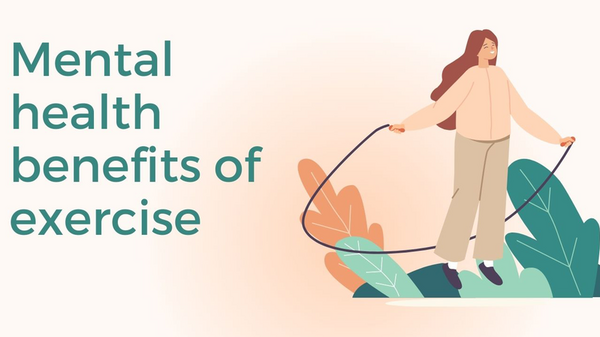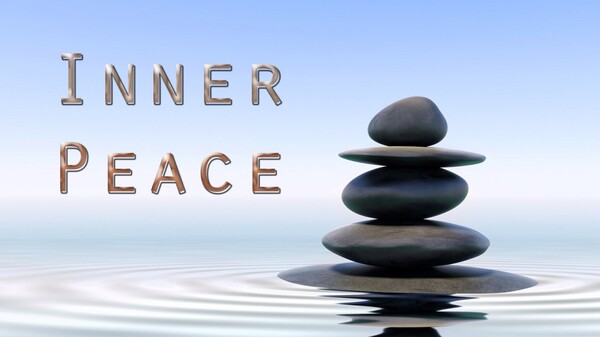Peace of mind is invaluable, but often, it seems out of reach. Have you ever wondered why it matters and how to get it? Let's explore the power of peace of mind together and discover how to quiet the chaos in our lives.
What is Peace of Mind, and Why is it Important?

Peace of Mind is a mental state that enables a person to be content and feels fulfilled. Many believe that achieving peace requires letting go of material possessions or dedicating time to contemplate and meditate. Amid life's many stressors, experiencing joy and tranquility can help establish inner balance and acceptance.
Peace of mind is essential for maintaining physical, mental, and emotional well-being. Connecting with the present moment can release tension associated with past experiences or future worries. This feeling can bring increased resilience when faced with difficult times and enhanced overall satisfaction in life's daily adventures.
Peace of mind has many benefits; it is associated with
- improved concentration
- greater joy in life's activities
- enhanced creativity
- more meaningful connections with others
- greater self-esteem
- increased confidence in making decisions about our lives
Having peace of mind allows for
- clearer thinking and planning
- better problem-solving skills
Additionally, it allows us to objectively recognize our strengths and weaknesses to work towards healthy solutions within ourselves and our lives.
Understanding the Causes of Stress and Anxiety

When determining the cause of your stress or anxiety, it's essential to consider various factors. Environmental factors, such as financial difficulties, workplace pressures, or strained family life, can cause stress and anxiety. Similarly, certain events might trigger everyday stressors or situations where you feel overwhelmed and unable to cope emotionally. Additionally, certain illnesses or medications can cause physical sensations and emotional mood changes that cause anxiety.
In addition to genetics, behaviors learned throughout life—like the ability to express feelings and emotions—can contribute to developing anxiety issues. Furthermore, genetic predispositions can increase the likelihood of anxiety mess like Generalized Anxiety Disorder (GAD) or Panic Disorder. People with these conditions often experience a heightened sense of fear and worry on an ongoing basis.
Finally, when people lack adequate coping skills, they may become overwhelmed by their emotions; many forms of therapy emphasize training in new coping skills that can help manage stress and worry when confronted with specific situations. Knowing the causes of your stress and anxiety is essential to develop effective strategies for dealing with it in daily life and during times of crisis or transition.
Developing Healthy Habits to Achieve Peace of Mind

Developing and maintaining healthy habits is essential for achieving peace and well-being. This can include anything from following a nutritious diet to committing to regular exercise and getting enough sleep. Regular physical activity has been found to directly impact one's mental state, releasing endorphins that relieve stress and tension, resulting in a happier outlook.
Cultivating healthy resources for distress tolerance can also help support sustained well-being. Developing activities that escape everyday worries, such as reading, painting, or meditation, are just some ways to relieve stress. Taking time to plan out how you will address stressful situations – approaches such as breaking down tasks into manageable chunks or seeking help from family and friends – will help give you the confidence to cope should anything arise.
Finally, self-care practices such as engaging in activities that nourish the soul are necessary to recharge and relax. Reconnecting with nature or having social activities that promote quality relationships can go a long way in helping us maintain balance during uncertain times. Being kinder to ourselves will lead us towards healing by recognizing our strengths and how far we have come instead of constantly beating ourselves up for what we perceive as imperfections or mistakes made along the way.
Meditation and Mindfulness Practices for Peace of Mind

There are many ways to find peace of mind; meditation and mindfulness practices are the most popular. Meditation and mindfulness have been practiced for centuries worldwide and continue to be used for emotional balance, relaxation, and clarity of thought.
The benefits of meditation and mindfulness practices include:
- Decreased stress.
- Improved focus.
- Increased self-awareness.
- Greater self-acceptance.
- The ability to stay in the near moment.
Practicing these activities can also improve physical well-being by aiding with restful sleep, reducing pain, and lowering blood pressure. Mindfulness involves bringing awareness into the present moment without trying to control or modify it; observing without judgment. Meditation aims to stay focused on a particular thought, object, or activity while paying attention to where your mind tends to wander. Meditating helps center your thoughts to reduce stress and distractions, giving you more control over your emotions.
Many different meditations can be adapted based on individual needs; however, practicing regularly can bring even more benefits regardless of how long it lasts each day or what technique you use. Sitting quietly for a few minutes in the morning or just before bed can create enough inner calmness to face hectic days with more clarity or allow yourself peace before getting much-needed rest at night.
Practicing random moments of mindfulness throughout the day in busy places such as airports or lines helps bring some peace amid chaos when time allows away from tasks. So no matter if it's five minutes three times per day or longer sessions on weekends, making time for these activities will increase feelings of relaxation no matter how short the periods might be when starting.
The Benefits of Exercise for Mental Health

Exercise is an essential tool for maintaining mental health and well-being. Studies have shown that activity can positively impact mood, reduce symptoms of stress, depression, and anxiety, and maintain cognitive functioning. It has also been found to benefit overall mental health due to the free of endorphins during physical activity.
Regular physical activity helps to improve sleep quality, which is an essential part of mental well-being. Getting adequate restful sleep allows for greater cognitive clarity and stress management during the day. Exercise also decreases feelings of guilt and increases motivation by giving individuals a sense of accomplishment – something that many people with mental health issues often lack.
In addition to its direct benefits, exercise can be used as a distraction from worrying thoughts and rumination, which are common in those struggling with mental health. The feeling of improved physical strength from exercising is also helpful in restoring self-confidence when thrown off balance by complex emotional states.
Mental well-being is essential for life satisfaction, yet it can be hard to be the motivation necessary for achieving it in modern times – especially when coping with other stressors or already having low energy levels due to poor mental health. Exercise presents itself as a valuable means through which you can work towards improving this. It also remains one of the most important daily habits that everyone should incorporate into their lifestyle to promote a higher quality of life, both physically and mentally.
Exploring the Connection Between Diet and Mental Health

It is increasingly recognized that a healthy diet is essential for overall physical health, but how does it affect our mental well-being? As part of a holistic approach to mental health, many scientific studies explore the connection between diet and our psychological state. Eating patterns may significantly influence both the development and resolution of psychological issues.
To support overall mental health, the scientific community recommends consuming a balanced diet that contains adequate amounts of vitamins and minerals from whole food sources such as vegetables, fruits, legumes, nuts, seeds, and grains. The Mediterranean diet is one case of a dietary pattern associated with better mental health outcomes.
Foods high in unhealthy fats and refined sugars should be avoided since they have been linked to more significant stress and anxiety levels. It's also suggested to limit processed meats since they contain high preservatives, which can disrupt hormone levels in the body. Additionally, some people benefit from eliminating or limiting specific ingredients or types of foods if they trigger unpleasant physical or emotional responses.
The quality and quantity of what we eat directly impact how we feel mentally and emotionally. Eating healthy foods can help us feel more balanced emotionally while boosting our energy levels and improving concentration skills, bringing us closer to experiencing peace of mind every day. So, we must regularly pay attention to these food choices to maintain our overall well-being.
Connecting with Others to Find Inner Peace

While searching for inner peace and happiness can often feel like a solitary journey, connecting with others who can relate to your struggle can be a powerful tool for finding peace of mind. Research shows that people who have been through similar experiences are much more likely to have greater self-esteem, more robust optimism, and increased overall satisfaction with life than those who do not foster close connections with others.
These connections do not need to be limited to face-to-face interactions, either. Online communities such as forums and social media – dedicated to reducing stress and connecting with others on the same path – are becoming increasingly popular means of reaching out during times of hardship. Whether or not they can offer advice or just a listening ear, these sources often provide comfort and an outlet for working through feelings and emotions associated with personal problems. Sometimes, these connections become essential to support authorities during different life periods.
For relationships like these to allow someone to reach their optimal level of inner peace, individuals must establish meaningful connections rooted in trust and understanding rather than dwelling on loneliness or dissatisfaction. When done effectively, this process helps cultivate deeper insight into one's sense of meaning and significance, making the path toward greater self-acceptance much easier in the long run.
Taking Action: How to Maintain Long-Term Peace of Mind

Peace of mind is not something that you can achieve or maintain overnight. It requires taking proactive steps to make consistent progress toward your goals and transformation.
Here are some tips for maintaining long-term peace of mind:
- Know yourself: To reach a state of inner peace, knowing yourself and being aware of your triggers and what causes you stress or anxiety is essential. By understanding your limitations, strengths, and weaknesses, you can more readily understand how to cope with emotions and situations in a way that works best for you.
- Make time for yourself: Being mindful of how you feel and taking time out to be present will help build the foundations for peace of mind. Stress management techniques such as meditation, yoga, walks in nature, reading a book, or journaling can go a long way in helping to de-clutter mental space and stay grounded throughout the week ahead.
- Take care of yourself physically: Regular exercise helps us maintain our physical health, improving our overall mental well-being. Additionally, try setting healthy boundaries so that unhealthy tasks don't take precedence over self-care activities when life does get busy!
- Seek support: Building solid relationships with friends and family who provide support is essential for improving mental well-being over time by having someone who listens non-judgmentally and celebrates successes with us along the way!
- Limit social media/technology usage: Recent studies have linked excessive technology usage, such as social media, with increased feelings of loneliness, anxiety, or depression which have definite impacts on overall mental well-being when not managed carefully!
Conclusion:
Peace of mind is essential for maintaining physical, mental, and emotional well-being. Connecting with the present moment can release tension associated with past experiences or future worries. Knowing the causes of your stress and anxiety is essential so you can develop effective strategies for dealing with it. Developing and maintaining healthy habits is necessary for achieving peace and well-being. Regular physical activity releases endorphins that relieve stress and tension, resulting in a happier outlook.
FAQ's:
Why peace of mind is essential?
Inner peace calms our minds and allows us to see our path more transparently, helping us focus and keep track of our goals. Having clear goals is like having a compass; you know where you want to go, aim for it and commit to the road, trusting that all obstacles are worthy challenges rather than intimidating threats.
How to find peace of mind and happiness
Spend some time outside. You might discover peace when you spend time in nature, such as by taking short walks or simply enjoying it. Take time to meditate, be grateful, and take responsibility for your actions. Love yourself; don't let your past mistakes define who you are. Practice contentment and acceptance, then declutter.
How to get peace of mind in daily life
- Face up to hard truths. It's unnecessary to eliminate all unpleasant feelings or thoughts to get peace of mind.
- A journal.
- Make contact with the people you adore and trust.
- Be energetic.
- Spend some time outside.
- Sleep.
- Eat healthfully.
- Make an effort to forgive.
How to have peace of mind in a relationship
Respect and admiration are essential strategies for developing a positive, loving, peaceful relationship. Respecting someone is realizing that they are not the same as you. They should be regarded as the unique person that they are. It's not about trying to change or control the other person.
Related Keywords:
















